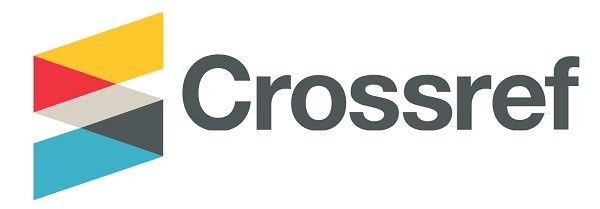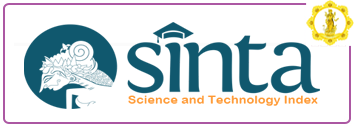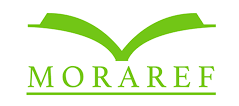Strategi Guru Dalam Peningkatan Mutu Pembelajaran Etika Hindu
DOI:
https://doi.org/10.25078/jpm.v6i2.1449Keywords:
Strategy, Ethics, Hindu Religious EducationAbstract
Ethics is the basic framework of learning Hinduism. The decline in the ethics of the Hindu youth generation can be overcome from an educational aspect. The purpose of this research to determine the teacher's strategy in implementing Hindu Ethics in Hindu Religion learning. This research uses qualitative research. Data collection methods used in this research are methods such as (1) observation, (2) interviews, (3) documentation. After the data is collected, the data is processed with descriptive data in the following steps: 1) argumentative inductive technique through the description process - categorization - specifications (details of classification) then go from the specific facts inductively to conclusions, (2) Classification and (3) Interpretation. Data description is done through interviews, observations, and documents in writing. This research was conducted in class XI as many as 12 classes and the number of students consisted of 450 people, but the focus of this research was in class XI IPS 3, where IPS students were known for their lack of good ethics towards teachers in the teaching and learning process which consisted of 39 students. The Hindu Ethics Learning Strategy in class XI SMA Negeri 7 Denpasar is carried out in a structured manner, starting from preliminary activities including apperception which is a stepping stone given to the teacher to motivate students in the Hindu Ethics learning process so that students have attitudes by the teachings of Ahimsa and Satya. The core activities include observing, questioning, gathering, associating, or processing information and communicating the results. The final activity, namely the teacher provides an assessment of students to determine the level of student understanding of the material given.
Downloads
References
Adnyani, N. K. S., & Sudarsana, I. K. (2017). Tradisi Makincang-Kincung Pada Pura Batur Sari Dusun Munduk Tumpeng Di Desa Berangbang Kecamatan Negara Negara Kabupaten Jembrana (Perspektif Pendidikan Agama Hindu). Jurnal Penelitian Agama Hindu, 1(2), 225-231.
Alsa, A. (2015). Pengaruh metode belajar Jigsaw terhadap keterampilan hubungan interpersonal dan kerjasama kelompok pada mahasiswa fakultas psikologi. Jurnal Psikologi, 37(2), 165-175.
Ari Kusumawati, N., & Prima Dewi PF, K. A. (2019). PENGEMBANGAN MEDIA PEMBELAJARAN BERBASIS TEKNOLOGI INFORMASI DALAM MENINGKATKAN MUTU PEMBELAJARAN PENDIDIKAN AGAMA HINDU ABAD 21. Adi Widya: Jurnal Pendidikan Dasar. https://doi.org/10.25078/aw.v4i2.1120
Arini, N. M. (2019). Swadharma grihastha asrama on educating children toward Hindu families. International Journal of Social Sciences and Humanities.
Boon Pong, Y. (2005). Amalan Reflektif Ke Arah Peningkatan Profesionalisme Diri Guru. Jurnal IPBA.
Bullock, A., & De Jong, P. G. (2013). Technology-enhanced learning. In Understanding Medical Education: Evidence, Theory and Practice: Second Edition. https://doi.org/10.1002/9781118472361.ch11
Dharmaningsih, N. M. S. U., Tanu, I. K., & Sutriyanti, N. K. (2018). Hindu Teacher Religion Learning Strategy In SMA Negeri 5 Denpasar. Vidyottama Sanatana: International Journal of Hindu Science and Religious Studies.
Haryanto, D. P. (2007). INOVASI PEMBELAJARAN. Perspektif Ilmu Pendidikan.
Hutagaol, K. (2013). PEMBELAJARAN KONTEKSTUAL UNTUK MENINGKATKAN KEMAMPUAN REPRESENTASI MATEMATIS SISWA SEKOLAH MENENGAH PERTAMA. Infinity Journal. https://doi.org/10.22460/infinity.v2i1.27
Subudiartha, I N.. (2018). IMPLEMENTASI ETIKA KOMUNIKASI PADA KELUARGA HINDU DI KOTA MATARAM. Widya Sandhi, Vol 9 No 1.
Indrawan, I. P. O., Saskara, G. A. J., & Wijaya, I. K. W. B. (2019). Kreativitas dan Motivasi Belajar Mahasiswa dalam Implementasi Blended Learning Berbasis Bali. International Journal of Natural Sciences and Engineering.
Liu, I. F., Chen, M. C., Sun, Y. S., Wible, D., & Kuo, C. H. (2010). Extending the TAM model to explore the factors that affect Intention to Use an Online Learning Community. Computers and Education. https://doi.org/10.1016/j.compedu.2009.09.009
Madja, I. K. (2018). LANDASAN PENGEMBANGAN ETIKA DAN MORALITAS HINDU. GUNA WIDYA: JURNAL PENDIDIKAN HINDU.
Sutriyanti, N. K. (2019). Karakteristik Keluarga Hindu Di Desa Bayunggede Provinsi Bali. Religious: Jurnal Studi Agama-Agama Dan Lintas Budaya.
Permendikbud. (2016). Peraturan Menteri Pendidikan dan Kebudayaan Republik Indonesia Nomor 22 Tahun 2016 tentang Standar Proses Pendidikan Dasar dan Menengah. Journal of Chemical Information and Modeling.
Rudiarta, I. W. (2020). Implikasi Latihan Yoga Asana Bagi Pembentukan Karakter Siswa Di Ashram Gandhi Puri Sevagram Klungkung. Jurnal Penelitian Agama Hindu. https://doi.org/10.25078/jpah.v4i1.1314
Suadnyana, I. B. P. E. (2018). KAJIAN NILAI PENDIDIKAN AGAMA HINDU DALAM KONSEP MANYAMA BRAYA. Jurnal PASUPATI.
Subagia, I. N. (2016). ETIKA SEBAGAI DASAR PENGENDALIAN DIRI MANUSIA. Jurnal Penjaminan Mutu. https://doi.org/10.25078/jpm.v1i1.43
Sudana, I. M., Sudarsana, I. K., & Setyaningsih, . (2018). Strategi Peningkatan Mutu Pembelajaran Agama Hindu Di Sekolah Luar Biasa C Negeri Bangli. Jurnal Penjaminan Mutu. https://doi.org/10.25078/jpm.v4i2.575
Sudrajat, A. (2008). Pengertian pendekatan, strategi, metode, teknik, taktik, dan model pembelajaran. Tersedia: Http://Akhmadsudrajat. Wordpress. Com/2008/09/12/Pengertian-Pendekatan-Strategi-Metode-Tekniktaktik-Dan-Model-Pembelajaran/.[20 Oktober 2008].
Sufairoh. (2016). Pendekatan Saintifik & Model Pembelajaran K-13. Bahastra. https://doi.org/10.26555/bahastra.v37i1.5641
Sugiyono. (2016). Memahami Penelitian Kualitatif. Bandung: Alfabeta.
Sugiyono. (2017). Pendekatan Kuantitatif, Kualitatif, Kombinasi, R&D dan Penelitian Evaluasi. In Metodelogi Penelitian.
Sukmawati, I., Neviyarni, N., Syukur, Y., & Said, A. (2013). Peningkatan Hasil Belajar melalui Dinamika Kelompok dalam Perkuliahan Pengajaran Psikologi dan Bimbingan Konseling (PPBK). Pedagogi.
Titib, I. M., & Sapariani., N. K. (2006). Keutamaan Manusia dan Pendidikan Budhi Pekerti.
Widoyoko Tayibnapis, F. Y. (2000). Evaluasi Program Pembelajaran. Jurnal Ilmu Pendidikan.









